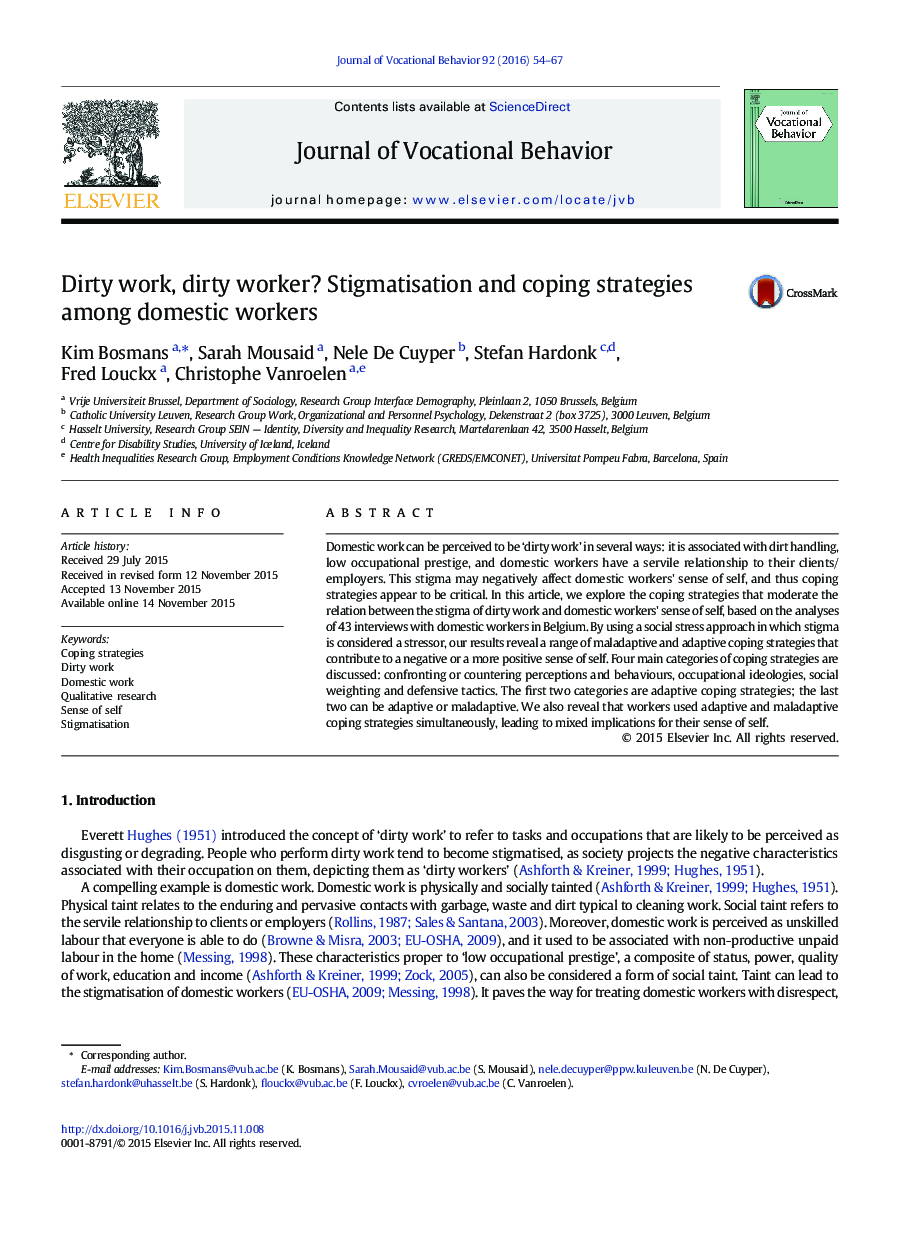| Article ID | Journal | Published Year | Pages | File Type |
|---|---|---|---|---|
| 7247663 | Journal of Vocational Behavior | 2016 | 14 Pages |
Abstract
Domestic work can be perceived to be 'dirty work' in several ways: it is associated with dirt handling, low occupational prestige, and domestic workers have a servile relationship to their clients/employers. This stigma may negatively affect domestic workers' sense of self, and thus coping strategies appear to be critical. In this article, we explore the coping strategies that moderate the relation between the stigma of dirty work and domestic workers' sense of self, based on the analyses of 43 interviews with domestic workers in Belgium. By using a social stress approach in which stigma is considered a stressor, our results reveal a range of maladaptive and adaptive coping strategies that contribute to a negative or a more positive sense of self. Four main categories of coping strategies are discussed: confronting or countering perceptions and behaviours, occupational ideologies, social weighting and defensive tactics. The first two categories are adaptive coping strategies; the last two can be adaptive or maladaptive. We also reveal that workers used adaptive and maladaptive coping strategies simultaneously, leading to mixed implications for their sense of self.
Related Topics
Social Sciences and Humanities
Business, Management and Accounting
Marketing
Authors
Kim Bosmans, Sarah Mousaid, Nele De Cuyper, Stefan Hardonk, Fred Louckx, Christophe Vanroelen,
